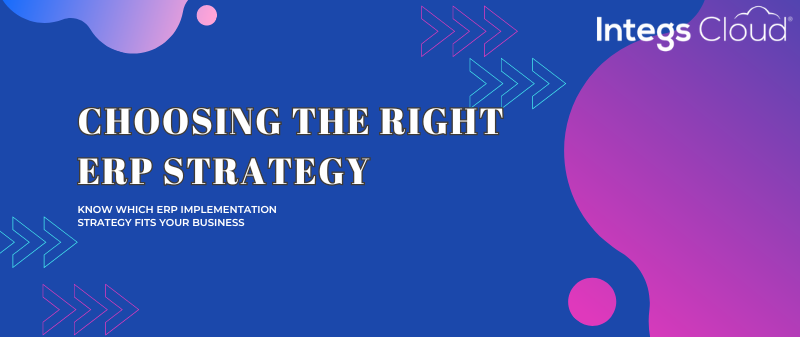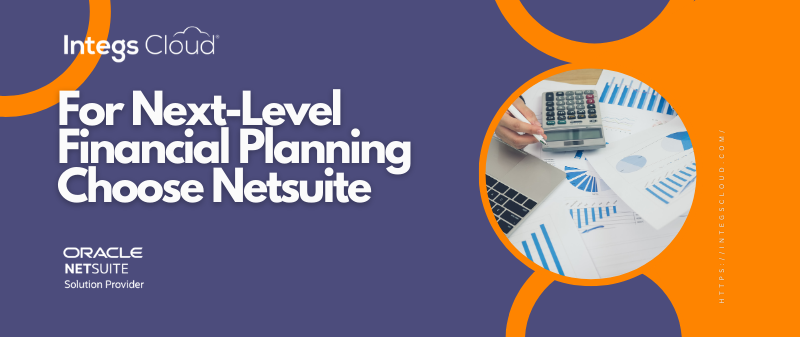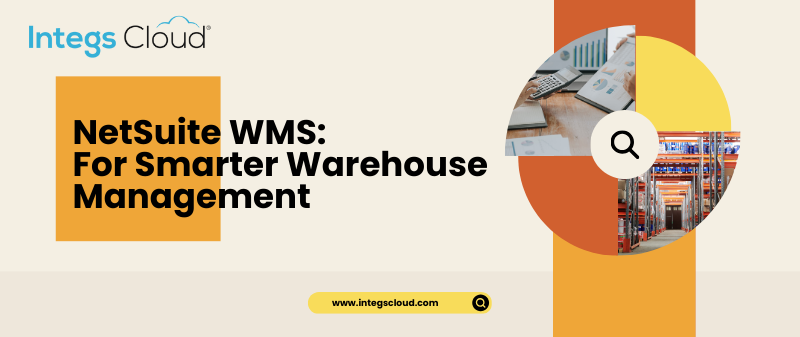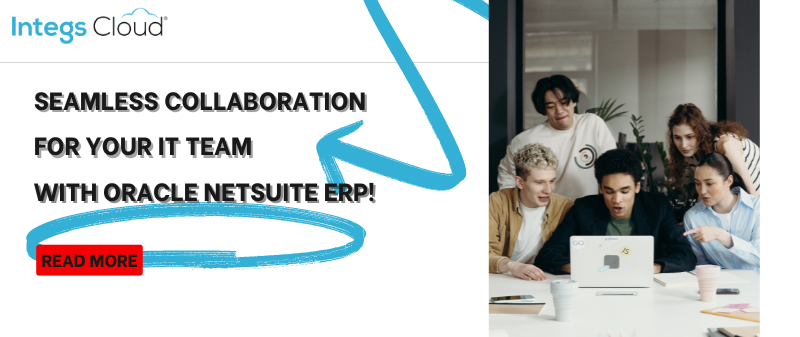Implementing an ERP system can transform how your business operates, making things smoother and more efficient. But to succeed, you need the right strategy. In this blog, let’s walk through the stages of ERP implementation, explore different strategies to choose from, and help you decide which approach works best for you. Plus, learn why Oracle NetSuite is a top choice and how Integs Cloud can help you on this journey.
ERP Implementation Stages
- Planning and Discovery: This is the foundation stage, where businesses define the scope, goals, and timeline for the ERP implementation. It involves identifying key stakeholders, selecting an ERP solution, and performing a thorough needs assessment.
- Design: At this stage, businesses map out their processes and determine how the ERP will align with their operations. Customizations and configurations are planned here to ensure the ERP fits the unique needs of the business.
- Development: The ERP solution is configured and customized based on the specific requirements. This stage also involves integrating the ERP system with existing applications, ensuring data migration strategies are in place, and building any necessary custom features.
- Testing: Before going live, it’s essential to test the system rigorously. This includes functional testing, user acceptance testing (UAT), and performance testing. The objective is to identify any issues and fix them before full deployment.
- Deployment: The system goes live at this stage. Businesses may choose to implement the ERP in phases (phased approach) or all at once (big bang). Proper training and user onboarding are crucial at this point to ensure a smooth transition.
- Support and Optimization: Post-implementation, businesses must ensure ongoing support and optimization of the ERP system. This includes monitoring performance, making continuous improvements, and providing user support to fully leverage the ERP’s capabilities.
ERP Implementation Strategies
- Big Bang Approach: The entire ERP system is deployed across all departments simultaneously. This strategy can lead to quicker results but carries higher risks, as any implementation issues can disrupt multiple areas of the business at once.
- Phased Rollout: This strategy involves implementing the ERP system in phases, focusing on one module or department at a time. It minimizes risk, as the system is gradually introduced, allowing time to resolve any issues before moving to the next phase.
- Parallel Adoption: The old system runs alongside the new ERP until the transition is complete. This ensures business continuity and minimizes risk, but can be more costly and resource-intensive due to the need to maintain two systems temporarily.
- Hybrid Approach: A combination of the above strategies, where certain modules are implemented using the big bang approach, while others follow a phased or parallel rollout. This offers flexibility, especially for businesses with varying needs across departments.
How to Determine Which ERP Implementation Strategy Fits You
Choosing the right ERP implementation strategy depends on several factors:
- Business Size: Larger businesses may benefit from a phased approach due to the complexity of operations, while smaller businesses might opt for a big bang approach to achieve quicker results.
- Resource Availability: If your business has limited resources, a phased or parallel approach can help manage workloads and prevent disruptions.
- Operational Risk: Businesses with high-risk operations, such as manufacturing, might prefer a phased rollout to minimize downtime and disruptions during the transition.
- Time Constraints: If time is of the essence, the big bang approach can provide faster results, although it requires more intensive planning and preparation to avoid disruptions.
Why Choose Oracle NetSuite?
When it comes to choosing an ERP system, NetSuite is a game-changer. Not only does it offer a cloud-based platform with the flexibility to grow alongside your business, but it’s trusted by industry leaders.
It’s not just us saying this – 84% of companies on the Forbes Cloud 100 list are NetSuite customers. With features like real-time analytics, financial management, and supply chain solutions, Oracle NetSuite is designed to grow with your business and help you succeed.
Whether you’re a startup scaling fast or an established enterprise looking to optimize processes, NetSuite’s cloud ERP offers the agility and power you need.
Choose Integs Cloud as Your NetSuite Solution and Implementation Partner
At Integs Cloud, we specialize in delivering successful Oracle NetSuite implementations tailored to meet the unique needs of your business. With our 10+ Years of industry expertise and deep understanding of the ERP landscape, we guide businesses through every stage of the ERP implementation process, ensuring a smooth and efficient transition.
Let us help you transform your business operations and unlock the full potential of NetSuite. Partner with Integs Cloud today to embark on your ERP journey with confidence.



